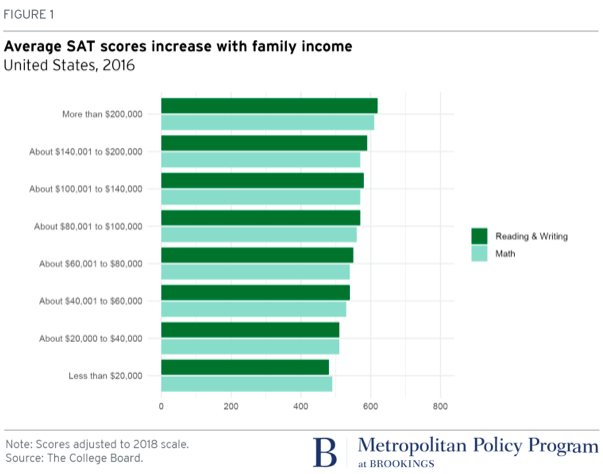To witness the effects of America’s failing education system, one does not have to look any further than Milwaukee’s 53206 ZIP code. In this ZIP code, only 73% of individuals complete their high school education and only 7% earn a bachelor’s degree or higher. Both of these numbers are among the lowest in Wisconsin and are well below the national averages. Why is this the case? For starters, classroom resources in low-income public schools can be scarce.
I had a chance to speak with Gwen Moore, the Congress member who represents Wisconsin’s 4th Congressional District which includes the 53206 ZIP code, at a speaker event held at Marquette University last month. Moore said she believes an individual’s ZIP code defines the kind of education and opportunities they will get. She pointed out that educational funding cuts in Wisconsin by the former Governor Scott Walker, affected the Milwaukee Public School system and thus limited the number of opportunities available to students. She said that some MPS students and teachers didn’t even have basic materials like pens and pencils. The 53206 ZIP code is just one of many that have been affected by this decrease in funding.
In addition to this, low-income students are vastly underrepresented in AP courses. According to a statewide Connecticut Department of Education study, low-income students make up 36% of the student population but only 17% of the AP population. This is a notable disadvantage not only because these students are not encouraged to take these courses but because in most cases, in order to get college credit for these AP courses, one must pay to take a test. To dovetail off that, the fact that one has to pay may deter them from taking these courses, which in the long run could save them money by providing them with college credits.
One of the main “opportunities” that the United States’ education system is designed to provide is higher education. Standardized tests such as the SAT and ACT are big determinants in the college admission process and are often mandatory.
Looking at the SAT first, according to a graph produced by Brookings that used information from the College Board website to illustrate test scores by income, with each tax bracket, SAT test scores in math, reading and writing increase without exception. The same trend is found with the ACT: the higher the income, the higher the score.
Why is this the case and why is it a problem? Lower-income neighborhoods usually have fewer resources to offer their students. Also, paid prep courses that help students attain certain SAT or ACT scores are becoming more common, and people in low-income situations may not be able to afford these courses.
There is nothing wrong with using your resources to ensure success, but the very idea of these standardized tests is to create an equal opportunity for all students to demonstrate that they are college-ready. It seems that instead, students in low-income situations are at a disadvantage simply because of their financial situations.
If a student from a low-income background makes it into a higher education institution, they are then immediately faced with the dilemma of how to pay for it. The prospect of accruing student loan debt alone is enough to discourage individuals from going to universities. The decision to pursue an expensive degree comes with the trade-off of feeling economically debilitated.
Another avenue to affordability is scholarships. Scholarships are designed to be an equalizer that will allow people who cannot afford to attend a university to attend, at a discounted price. While they do accomplish that goal, actually getting a scholarship can be very challenging. When an individual’s socioeconomic status already puts them at a disadvantage in the classroom, how can creating a solution based on exceptional academic performance possibly be the solution?
The idea of the scholarship perpetuates academic injustices by enabling just enough people from low-income situations to attend universities to justify this broken system.
Even when one receives a scholarship, they are usually attached to stipulations concerning academic performance. Though this makes sense, it can be seen as a flaw in the idea of the scholarship: as students strive to attain scholarships through rigorous study, they miss out on opportunities to socialize and create networks for themselves.
A TopResume study has shown that creating a network is one of the most important things for success after graduation. The study found that 35% of professionals say that they received their current or most recent job through a professional connection, and 60% of survey respondents say they’ve referred a friend or contact to a company.
Education has been lauded as the great equalizer in our society, as it has been characterized as the key to upward economic mobility. But if our government and broader society truly believes and cares about that idea, there needs to be drastic changes made to either the funding of schools in America or the criterion in which individuals’ education is judged.
A student should not have to transcend the constraints of the neighborhood they are born in when they are trying to educate themselves. Opportunity needs to be dependent on the individual’s willingness to work hard and better themselves and not things like generational wealth and ZIP codes.
This story was written by Beck Andrew Salgado. He can be reached at beck.salgado@marquette.edu.





